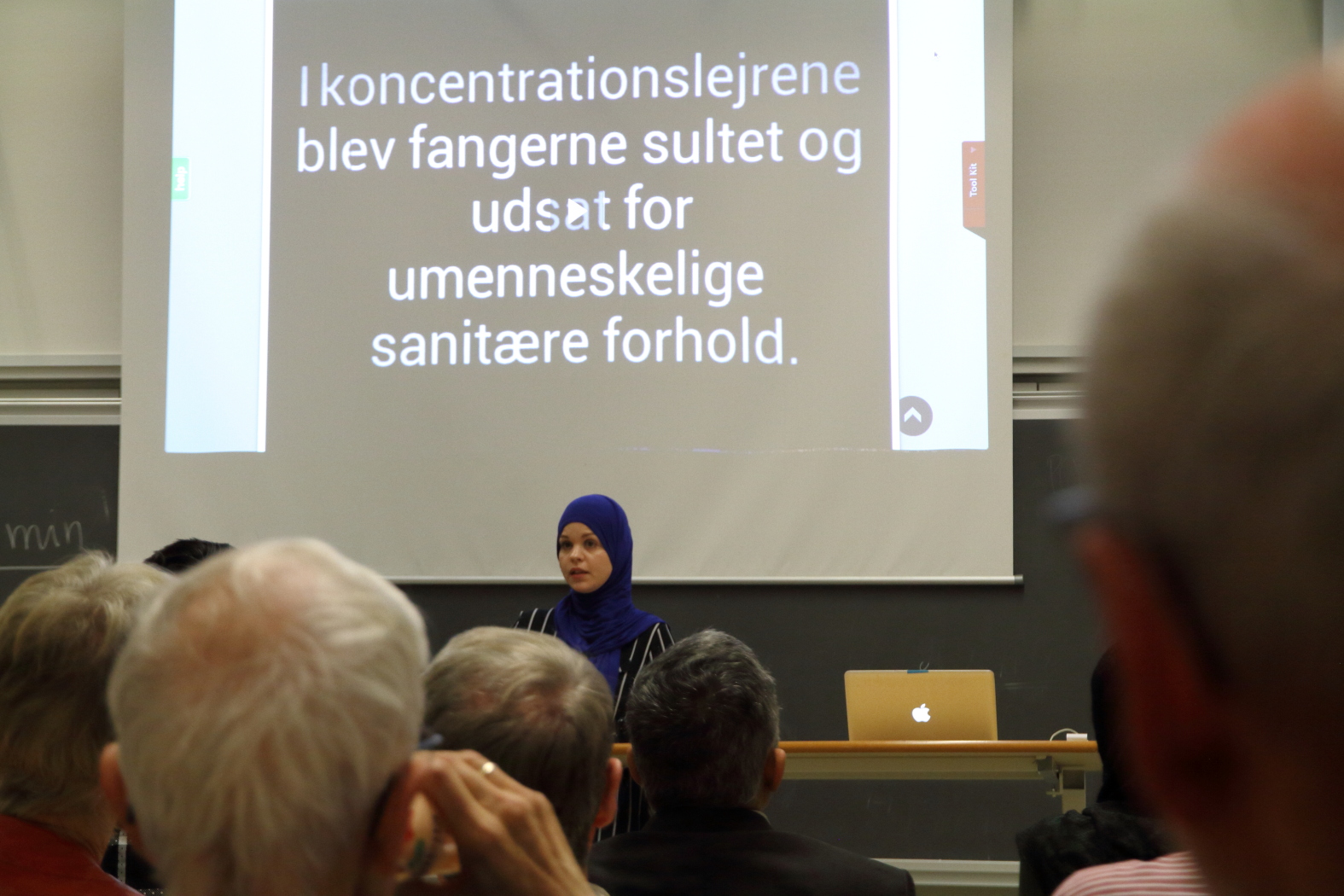University of Southern Denmark Students Present IWitness Videos

After a semester-long study of Holocaust survivor narratives, four students in Professor Therkel Straede’s class at the University of Southern Denmark presented the short videos they made in IWitness to an audience of faculty, students and members of the public.
Straede has long incorporated testimonies from the Visual History Archive into his research (including a current project on cannibalism in the concentration camps of World War II) and has shown testimonies to several of his history classes at the University of Southern Denmark in the past, but had never assigned students to construct their own videos in IWitness. Last semester, he decided to give it a try, in a graduate course he teaches called “The Holocaust: Narratives of Victims.”
Straede gave the students the option of doing a written or oral exam at the end of the semester. If they chose the oral exam, they would need to construct a seven-minute video featuring one or more testimonies on IWitness, focusing on a topic from a list provided by Straede, and then present the video to the rest of the class.
The possible video topics included violence, parent/child relationships, resilience, forced labor, the importance of giving testimony, and more.
Straede said several students chose to make videos and he was impressed with how they turned out.
“The videos were so good and so interesting,” he said. “It’s incredible how much they were able to bring in under the limit of seven minutes. I was struck by the quality.”
On September 27 at a two hour presentation on campus, four students who made videos (Lamiaa Sabah Karim, Sania Rahimi, Claus Hansen and Jacob Kornerup) screened their work for the audience and spoke about their inspiration and what they learned from the testimonies.
Straede said the four films were powerful and touching, and made good use of selected testimonies from IWitness. The students also spoke about their choices of topic, their approach and the clips they selected quite impressively.
“I was especially taken by Lamiaa who is Danish-Arab and told us – in front of her family – about her struggle with Holocaust denial on Arab websites, and how the interaction with the USC Shoah Foundation interviews had made her understand the reality of the Holocaust from the victims’ point of view, and develop a critical approach to the antisemitic propaganda she has seen,” Straede said.
The event was attended by over 70 people, including members of the public who have family connections to the Holocaust and World War II and other students who came up to the presenters after the event to learn more about IWitness.